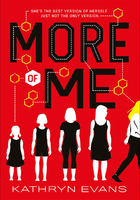Two men lay prone upon the ground, one bathed in blood and motionless, with his face toward the earth; this one was dead. The other leaned against a tree, supported there by the two valets, and was praying fervently, with clasped hands and eyes raised to Heaven. He had received a ball in his thigh, which had broken the bone. The young men first approached the dead man.
"He is a priest," said Bragelonne, "he has worn the tonsure. Oh, the scoundrels! to lift their hands against a minister of God."
"Come here, sir," said Urban, an old soldier who had served under the cardinal duke in all his campaigns; "come here, there is nothing to be done with him, whilst we may perhaps be able to save the other."
The wounded man smiled sadly. "Save me! Oh, no!" said he, "but help me to die, if you can."
"Are you a priest?" asked Raoul.
"No sir."
"I ask, as your unfortunate companion appeared to me to belong to the church."
"He is the curate of Bethune, sir, and was carrying the holy vessels belonging to his church, and the treasure of the chapter, to a safe place, the prince having abandoned our town yesterday; and as it was known that bands of the enemy were prowling about the country, no one dared to accompany the good man, so I offered to do so.
"And, sir," continued the wounded man, "I suffer much and would like, if possible, to be carried to some house."
"Where you can be relieved?" asked De Guiche.
"No, where I can confess."
"But perhaps you are not so dangerously wounded as you think," said Raoul.
"Sir," replied the wounded man, "believe me, there is no time to lose; the ball has broken the thigh bone and entered the intestines."
"Are you a surgeon?" asked De Guiche.
"No, but I know a little about wounds, and mine, I know, is mortal. Try, therefore, either to carry me to some place where I may see a priest or take the trouble to send one to me here. It is my soul that must be saved; as for my body, it is lost."
"To die whilst doing a good deed! It is impossible. God will help you."
"Gentlemen, in the name of Heaven!" said the wounded man, collecting all his forces, as if to get up, "let us not lose time in useless words. Either help me to gain the nearest village or swear to me on your salvation that you will send me the first monk, the first cure, the first priest you may meet. But," he added in a despairing tone, "perhaps no one will dare to come for it is known that the Spaniards are ranging through the country, and I shall die without absolution. My God! my God! Good God! good God!" added the wounded man, in an accent of terror which made the young men shudder; "you will not allow that? that would be too terrible!"
"Calm yourself, sir," replied De Guiche. "I swear to you, you shall receive the consolation that you ask. Only tell us where we shall find a house at which we can demand aid and a village from which we can fetch a priest."
"Thank you, and God reward you! About half a mile from this, on the same road, there is an inn, and about a mile further on, after leaving the inn, you will reach the village of Greney. There you must find the curate, or if he is not at home, go to the convent of the Augustines, which is the last house on the right, and bring me one of the brothers. Monk or priest, it matters not, provided only that he has received from holy church the power of absolving in articulo mortis."
"Monsieur d'Arminges," said De Guiche, "remain beside this unfortunate man and see that he is removed as gently as possible. The vicomte and myself will go and find a priest."
"Go, sir," replied the tutor; "but in Heaven's name do not expose yourself to danger!"
"Do not fear. Besides, we are safe for to-day; you know the axiom, 'Non bis in idem.'"
"Courage, sir," said Raoul to the wounded man. "We are going to execute your wishes."
"May Heaven prosper you!" replied the dying man, with an accent of gratitude impossible to describe.
The two young men galloped off in the direction mentioned and in ten minutes reached the inn. Raoul, without dismounting, called to the host and announced that a wounded man was about to be brought to his house and begged him in the meantime to prepare everything needful. He desired him also, should he know in the neighborhood any doctor or chirurgeon, to fetch him, taking on himself the payment of the messenger.
The host, who saw two young noblemen, richly clad, promised everything they required, and our two cavaliers, after seeing that preparations for the reception were actually begun, started off again and proceeded rapidly toward Greney.
They had gone rather more than a league and had begun to descry the first houses of the village, the red-tiled roofs of which stood out from the green trees which surrounded them, when, coming toward them mounted on a mule, they perceived a poor monk, whose large hat and gray worsted dress made them take him for an Augustine brother. Chance for once seemed to favor them in sending what they were so assiduously seeking. He was a man about twenty-two or twenty-three years old, but who appeared much older from ascetic exercises. His complexion was pale, not of that deadly pallor which is a kind of neutral beauty, but of a bilious, yellow hue; his colorless hair was short and scarcely extended beyond the circle formed by the hat around his head, and his light blue eyes seemed destitute of any expression.
"Sir," began Raoul, with his usual politeness, "are you an ecclesiastic?"
"Why do you ask me that?" replied the stranger, with a coolness which was barely civil.
"Because we want to know," said De Guiche, haughtily.
The stranger touched his mule with his heel and continued his way.
In a second De Guiche had sprung before him and barred his passage. "Answer, sir," exclaimed he; "you have been asked politely, and every question is worth an answer."
"I suppose I am free to say or not to say who I am to two strangers who take a fancy to ask me."
It was with difficulty that De Guiche restrained the intense desire he had of breaking the monk's bones.
"In the first place," he said, making an effort to control himself, "we are not people who may be treated anyhow; my friend there is the Viscount of Bragelonne and I am the Count de Guiche. Nor was it from caprice we asked the question, for there is a wounded and dying man who demands the succor of the church. If you be a priest, I conjure you in the name of humanity to follow me to aid this man; if you be not, it is a different matter, and I warn you in the name of courtesy, of which you appear profoundly ignorant, that I shall chastise you for your insolence."
The pale face of the monk became so livid and his smile so strange, that Raoul, whose eyes were still fixed upon him, felt as if this smile had struck to his heart like an insult.
"He is some Spanish or Flemish spy," said he, putting his hand to his pistol. A glance, threatening and transient as lightning, replied to Raoul.
"Well, sir," said De Guiche, "are you going to reply?"
"I am a priest," said the young man.
"Then, father," said Raoul, forcing himself to convey a respect by speech that did not come from his heart, "if you are a priest you have an opportunity, as my friend has told you, of exercising your vocation. At the next inn you will find a wounded man, now being attended by our servants, who has asked the assistance of a minister of God."
"I will go," said the monk.
And he touched his mule.
"If you do not go, sir," said De Guiche, "remember that we have two steeds able to catch your mule and the power of having you seized wherever you may be; and then I swear your trial will be summary; one can always find a tree and a cord."
The monk's eye again flashed, but that was all; he merely repeated his phrase, "I will go,"—and he went.
"Let us follow him," said De Guiche; "it will be the surest plan."
"I was about to propose so doing," answered De Bragelonne.
In the space of five minutes the monk turned around to ascertain whether he was followed or not.
"You see," said Raoul, "we have done wisely."
"What a horrible face that monk has," said De Guiche.
"Horrible!" replied Raoul, "especially in expression."
"Yes, yes," said De Guiche, "a strange face; but these monks are subject to such degrading practices; their fasts make them pale, the blows of the discipline make them hypocrites, and their eyes become inflamed through weeping for the good things of this life we common folk enjoy, but they have lost."
"Well," said Raoul, "the poor man will get his priest, but, by Heaven, the penitent appears to me to have a better conscience than the confessor. I confess I am accustomed to priests of a very different appearance."
"Ah!" exclaimed De Guiche, "you must understand that this is one of those wandering brothers, who go begging on the high road until some day a benefice falls down from Heaven on them; they are mostly foreigners—Scotch, Irish or Danish. I have seen them before."
"As ugly?"
"No, but reasonably hideous."
"What a misfortune for the wounded man to die under the hands of such a friar!"
"Pshaw!" said De Guiche. "Absolution comes not from him who administers it, but from God. However, for my part, I would rather die unshriven than have anything to say to such a confessor. You are of my opinion, are you not, viscount? and I see you playing with the pommel of your sword, as if you had a great inclination to break the holy father's head."
"Yes, count, it is a strange thing and one which might astonish you, but I feel an indescribable horror at the sight of yonder man. Have you ever seen a snake rise up on your path?"
"Never," answered De Guiche.
"Well, it has happened to me to do so in our Blaisois forests, and I remember that the first time I encountered one with its eyes fixed upon me, curled up, swinging its head and pointing its tongue, I remained fixed, pale and as though fascinated, until the moment when the Comte de la Fere——"
"Your father?" asked De Guiche.
"No, my guardian," replied Raoul, blushing.
"Very well——"
"Until the moment when the Comte de la Fere," resumed Raoul, "said, 'Come, Bragelonne, draw your sword;' then only I rushed upon the reptile and cut it in two, just at the moment when it was rising on its tail and hissing, ere it sprang upon me. Well, I vow I felt exactly the same sensation at sight of that man when he said, 'Why do you ask me that?' and looked so strangely at me."
"Then you regret that you did not cut your serpent in two morsels?"
"Faith, yes, almost," said Raoul.
They had now arrived within sight of the little inn and could see on the opposite side the procession bearing the wounded man and guided by Monsieur d'Arminges. The youths spurred on.
"There is the wounded man," said De Guiche, passing close to the Augustine brother. "Be good enough to hurry yourself a little, monsieur monk."
As for Raoul, he avoided the monk by the whole width of the road and passed him, turning his head away in repulsion.
The young men rode up to the wounded man to announce that they were followed by the priest. He raised himself to glance in the direction which they pointed out, saw the monk, and fell back upon the litter, his face illumined by joy.
"And now," said the youths, "we have done all we can for you; and as we are in haste to rejoin the prince's army we must continue our journey. You will excuse us, sir, but we are told that a battle is expected and we do not wish to arrive the day after it."
"Go, my young sirs," said the sick man, "and may you both be blessed for your piety. You have done for me, as you promised, all that you could do. As for me I can only repeat, may God protect you and all dear to you!"
"Sir," said De Guiche to his tutor, "we will precede you, and you can rejoin us on the road to Cambrin."
The host was at his door and everything was prepared—bed, bandages, and lint; and a groom had gone to Lens, the nearest village, for a doctor.
"Everything," said he to Raoul, "shall be done as you desire; but you will not stop to have your wound dressed?"
"Oh, my wound—mine—'tis nothing," replied the viscount; "it will be time to think about it when we next halt; only have the goodness, should you see a cavalier who makes inquiries about a young man on a chestnut horse followed by a servant, to tell him, in fact, that you have seen me, but that I have continued my journey and intend to dine at Mazingarbe and to stop at Cambrin. This cavalier is my attendant."
"Would it not be safer and more certain if I should ask him his name and tell him yours?" demanded the host.
"There is no harm in over-precaution. I am the Viscount de Bragelonne and he is called Grimaud."
At this moment the wounded man arrived from one direction and the monk from the other, the latter dismounting from his mule and desiring that it should be taken to the stables without being unharnessed.
"Sir monk," said De Guiche, "confess well that brave man; and be not concerned for your expenses or for those of your mule; all is paid."
"Thanks, monsieur," said the monk, with one of those smiles that made Bragelonne shudder.
"Come, count," said Raoul, who seemed instinctively to dislike the vicinity of the Augustine; "come, I feel ill here," and the two young men spurred on.
The litter, borne by two servants, now entered the house. The host and his wife were standing on the steps, whilst the unhappy man seemed to suffer dreadful pain and yet to be concerned only to know if he was followed by the monk. At sight of this pale, bleeding man, the wife grasped her husband's arm.
"Well, what's the matter?" asked the latter, "are you going to be ill just now?"
"No, but look," replied the hostess, pointing to the wounded man; "I ask you if you recognize him?"
"That man—wait a bit."
"Ah! I see you know him," exclaimed the wife; "for you have become pale in your turn."
"Truly," cried the host, "misfortune is coming on our house; it is the former executioner of Bethune."
"The former executioner of Bethune!" murmured the young monk, shrinking back and showing on his countenance the feeling of repugnance which his penitent inspired.
Monsieur d'Arminges, who was at the door, perceived his hesitation.
"Sir monk," said he, "whether he is now or has been an executioner, this unfortunate being is none the less a man. Render to him, then, the last service he can by any possibility ask of you, and your work will be all the more meritorious."
The monk made no reply, but silently wended his way to the room where the two valets had deposited the dying man on a bed. D'Arminges and Olivain and the two grooms then mounted their horses, and all four started off at a quick trot to rejoin Raoul and his companion. Just as the tutor and his escort disappeared in their turn, a new traveler stopped on the threshold of the inn.
"What does your worship want?" demanded the host, pale and trembling from the discovery he had just made.
The traveler made a sign as if he wished to drink, and then pointed to his horse and gesticulated like a man who is brushing something.
"Ah, diable!" said the host to himself; "this man seems dumb. And where will your worship drink?"
"There," answered the traveler, pointing to the table.
"I was mistaken," said the host, "he's not quite dumb. And what else does your worship wish for?"
"To know if you have seen a young man pass, fifteen years of age, mounted on a chestnut horse and followed by a groom?"
"The Viscount de Bragelonne?
"Just so."
"Then you are called Monsieur Grimaud?"
The traveler made a sign of assent.
"Well, then," said the host, "your young master was here a quarter of an hour ago; he will dine at Mazingarbe and sleep at Cambrin."
"How far is Mazingarbe?"
"Two miles and a half."
"Thank you."
Grimaud was drinking his wine silently and had just placed his glass on the table to be filled a second time, when a terrific scream resounded from the room occupied by the monk and the dying man. Grimaud sprang up.
"What is that?" said he; "whence comes that cry?"
"From the wounded man's room," replied the host.
"What wounded man?"
"The former executioner of Bethune, who has just been brought in here, assassinated by Spaniards, and who is now being confessed by an Augustine friar."
"The old executioner of Bethune," muttered Grimaud; "a man between fifty-five and sixty, tall, strong, swarthy, black hair and beard?"
"That is he, except that his beard has turned gray and his hair is white; do you know him?" asked the host.
"I have seen him once," replied Grimaud, a cloud darkening his countenance at the picture so suddenly summoned to the bar of recollection.
At this instant a second cry, less piercing than the first, but followed by prolonged groaning, was heard.
The three listeners looked at one another in alarm.
"We must see what it is," said Grimaud.
"It sounds like the cry of one who is being murdered," murmured the host.
"Mon Dieu!" said the woman, crossing herself.
If Grimaud was slow in speaking, we know that he was quick to act; he sprang to the door and shook it violently, but it was bolted on the other side.
"Open the door!" cried the host; "open it instantly, sir monk!"
No reply.
"Unfasten it, or I will break it in!" said Grimaud.
The same silence, and then, ere the host could oppose his design, Grimaud seized a pair of pincers he perceived in a corner and forced the bolt. The room was inundated with blood, dripping from the mattresses upon which lay the wounded man, speechless; the monk had disappeared.
"The monk!" cried the host; "where is the monk?"
Grimaud sprang toward an open window which looked into the courtyard.
"He has escaped by this means," exclaimed he.
"Do you think so?" said the host, bewildered; "boy, see if the mule belonging to the monk is still in the stable."
"There is no mule," cried he to whom this question was addressed.
The host clasped his hands and looked around him suspiciously, whilst Grimaud knit his brows and approached the wounded man, whose worn, hard features awoke in his mind such awful recollections of the past.
"There can be no longer any doubt but that it is himself," said he.
"Does he still live?" inquired the innkeeper.
Making no reply, Grimaud opened the poor man's jacket to feel if the heart beat, whilst the host approached in his turn; but in a moment they both fell back, the host uttering a cry of horror and Grimaud becoming pallid. The blade of a dagger was buried up to the hilt in the left side of the executioner.
"Run! run for help!" cried Grimaud, "and I will remain beside him here."
The host quitted the room in agitation, and as for his wife, she had fled at the sound of her husband's cries.














